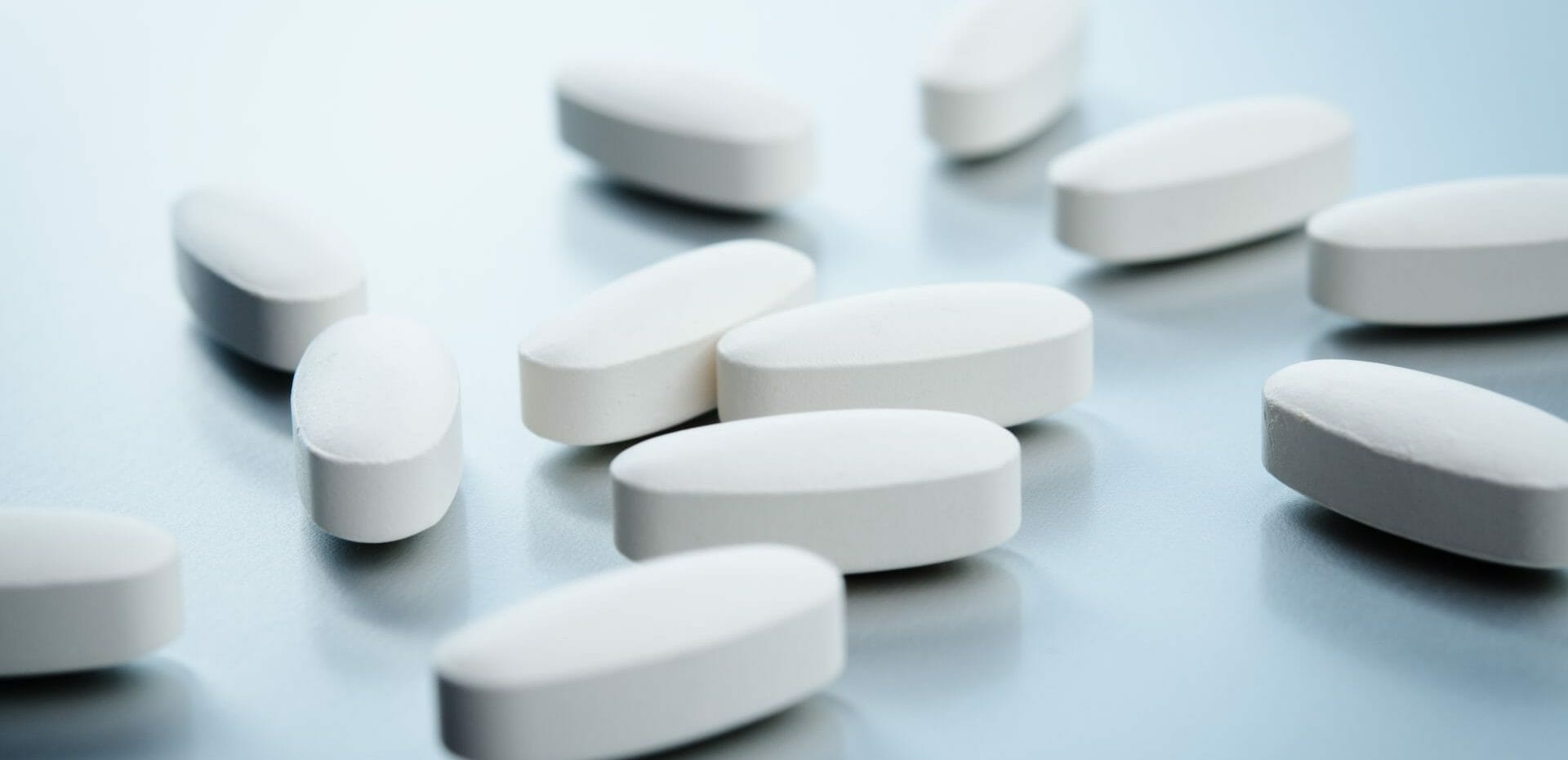Hydrocodone Addiction Explained
Hydrocodone is one of the most commonly available medicinal opioids worldwide (though its availability in the UK is more limited). Nevertheless, its use and abuse reach far beyond medical confines as it is responsible for countless cases of addiction.
What Is Hydrocodone?
Hydrocodone is an opioid (a drug acting on opioid receptors in the brain, producing morphine-like effects) with the chemical formula C18H21NO3; it is derived from codeine extracted from the opium poppy. Hydrocodone may be used medicinally but is also a comparatively common recreational substance, typically brought into the UK via dark web purchases. It is considered to be roughly equivalent to morphine in terms of potency and is known to be significantly habit-forming.

Available forms
Hydrocodone is available by itself in a long-acting formulation, though it is more typically sold in combination with paracetamol or ibuprofen. Either alone or in combination, it is usually found in tablet form or oral suspension and less frequently is found as an ingredient in some nasal sprays and suppositories).
Medical Uses
Hydrocodone may be used medicinally, but only in extreme situations where the patients cannot be relieved in any other way and need round-the-clock pain relief. It is counter-effective when people are opioid-tolerant, has a dangerously high addiction potential and may cause addiction in newborns if the mother has taken hydrocodone while being pregnant.
Legal status (UK)
In the UK, hydrocodone is a class-A controlled drug (the most restrictive class) with serious penalties for illegal possession and supply. Some combined forms (for example, with paracetamol) are not legally available in the UK.
Pharmacological actions of hydrocodone
Hydrocodone is an opioid, impacting upon opioid receptors in the brain and central nervous system and gastrointestinal tract, where it has depressant effects with sedative and analgesic properties, possibly also producing a sense of euphoria.
Hydrocodone Brand and Street Names
Hydrocodone is available – either by itself or in combination with paracetamol or ibuprofen – by a range of brand names around the world, including Hysingla, Vicodin, Vicodib, Anexsia, Lortab, Lorcet, Norco, Hycomine, Tussionex, Dicodid, Zohydro, Vicoprofen, Riboxen, Ibudone, Reprexain and Zydone.
On the street, it’s often called names such as hydro, narco, Vikes and Vickies.
Call our admissions line 24 hours a day to get help.
Hydrocodone Addiction and How It Develops
Addiction is a disorder of the brain’s reward system, whereby an individual is compelled to engage repeatedly in rewarding behaviour regardless of any negative consequences which may result from such behaviour. The more we engage in the consumption of hydrocodone – the more our brains grow accustomed to the experience, altering the production of chemicals, including dopamine, responsible for the positive sensations and emotions. Additionally, this creates serious negative psychological responses when the levels in the system of such chemicals are lowered as a result of the behaviour not being engaged in.
As an opioid, the repeated consumption of hydrocodone over time can also cause dependence, which develops when a person’s system adapts to the presence of certain levels of a substance (in this case, hydrocodone) and comes to rely on those levels for normal functioning. Once someone has become dependent, a sudden absence of the substance in question – for example, if they stop taking hydrocodone – can trigger the abnormal functioning of the brain and body, and the manifestation of various unpleasant and potentially dangerous symptoms. These withdrawal symptoms may even fall into the withdrawal syndrome classification.
Although addiction and dependence are closely related phenomena – and are frequently mistaken for each other – one can develop without the other.
Why is hydrocodone addictive?
Secondly, hydrocodone has a very high dependence liability, meaning that consuming it repeatedly over time is very likely to lead to the development of physical dependence. If the drug is stopped, some serious withdrawal symptoms may occur, making it seem impossible to stop entirely. This is why it’s important to call an addiction specialist for help – they are able to provide the needed support and medical supervision for an easier withdrawal period.

Causes & risks factors in hydrocodone addiction
Why one individual may develop an addiction, and another in very similar circumstances will not, is not based on a certain list of components or triggers. What research has shown is that there are too many different aspects of our lives, and our response to events is what may or may not trigger addictive behaviour. However, it is known that both genetics and an individual’s environment have a part to play in the development of addiction of any kind.
The main causes of hydrocodone addiction are the regular consumption of the drug for medical reasons, and the repeated recreational use of hydrocodone. Someone who initially takes hydrocodone for medical purposes may go on to use and abuse the drug recreationally, possibly as a means of combating withdrawal after developing dependence. The stigma of addiction, the fear of being recognised as an addict, also play a huge part in the continuous development of this condition.
Genetic
The genetic causes of addiction are becoming increasingly well understood, and it is clear that genes play a substantial role in individual susceptibility to addiction. A family history of substance abuse disorders is considered a serious risk factor for hydrocodone addiction. Mental health disorders of genetic origin are also prominent indicators of the likelihood that someone will develop an addiction to hydrocodone.
Biological
People who metabolise hydrocodone slowly, or who experience a greater than average euphoria when taking it, are more likely to become addicted to it. Chronic pain, depression and anxiety, and other physical and mental health disorders are also significant risk factors.
Environmental and Social
A previous history of substance abuse; having comparatively easy access to hydrocodone; belonging to a peer group in which hydrocodone abuse is prevalent, and having a partner who abuses hydrocodone, are all prominent risk factors for hydrocodone addiction.
Personality
People who are more likely to engage in risky activity; are extroverted to the point of showing off; are extremely introverted; have difficulties regulating their behaviour; or have a strong desire to fit in, are all more likely than the average to develop an addiction to hydrocodone.
Co-Occurring Disorders with Hydrocodone Addiction
It is possible for substance abuse to occur alongside other disorders. Individuals suffering from mental health issues may resort to substance abuse as a means of escaping or as a way to self-medicate. Substance abuse itself can cause a huge variety of mental health issues, especially if addiction is present.
The co-occurrence of a substance abuse disorder alongside mental health disorders is also known as dual diagnosis. If dual diagnosis is present in someone presenting for addiction treatment, specialist care will include treatment and care for the mental health problems alongside the addiction-related issues.
Relationship between prescription hydrocodone and other drugs

There are many known interactions which will be considered by a medical professional when making an informed decision regarding a new hydrocodone prescription.
Signs and Symptoms of Hydrocodone Addiction
Identifying an addiction in someone, even someone close to you can be very difficult, as addicts typically go to great lengths to conceal their condition because of the stigma associated with addiction and substance abuse.
Nevertheless, some symptoms typically indicative of addiction include:
- frequent intoxication
- financial troubles
- engagement in criminal activity
- mental and physical health issues
- a preoccupation with obtaining substances of abuse
- a disinterest in previously enjoyed activities
- changes in sex drive and sexual preferences
- altered peer group
- decreased attention to appearance and hygiene
- altered sleep pattern
- altered eating pattern
- an abandonment of personal and professional responsibilities
- a decrease in professional and/or academic performance
- frequent tiredness
- mood swings
Someone addicted to hydrocodone or other opioids may also exhibit various withdrawal symptoms if they stop taking the drug. Typical withdrawal symptoms include:
- nausea
- vomiting
- constipation
- headache
- insomnia
- decreased appetite
- feeling lightheaded or dizzy
- increased sweating
- hyperalgesia, or worsening pain
- anxiety
- depression
- rash or hives
- new and unexplained swelling
- trouble breathing
- difficulty swallowing
- chest pain
- extreme drowsiness
- fainting
- seizures
The Social Impact of Hydrocodone Addiction
Hydrocodone addiction has serious social ramifications. Addiction can cause breakups, job loss, homelessness and even suicide, all of which have an incalculable effect on those around us. Many hydrocodone addicts resort to criminal behaviour to fund their habits, with drug-related crime costing billions of pounds annually. The cost to the NHS of treating hydrocodone addiction specifically is not available, but treating drug misuse generally costs the NHS more than £500 million a year.
The Dangers of Hydrocodone Addiction
Hydrocodone, like any opioid, is a dangerous drug; not only can addiction and dependence result from regular use, but there is also the risk of overdose, which can be fatal. Hydrocodone use can also result in an increased risk of accident, risky sexual behaviour, criminal activity with potentially lifelong consequences, aggression resulting in violence, and a higher risk of contracting blood-borne diseases such as HIV/AIDS and hepatitis C.
Impact of Long-Term Hydrocodone Abuse on the Brain
Over the long term, hydrocodone abuse can cause frequent respiratory depression, which deprives the brain of oxygen; over a significant period, this can lead to permanent brain damage. Long-term opioid abuse is also linked with impaired decision-making, substandard behavioural regulation, and an inability to respond effectively to stressful situations.
Hydrocodone Overdose Explained

The most common signs of a hydrocodone overdose are the “opioid overdose triad”: decreased consciousness or unconsciousness, pinpoint pupils and respiratory depression. If you witness those symptoms, or seizures and muscle spasms, in anyone you know to have taken hydrocodone, call an ambulance immediately.
Other problematic symptoms of hydrocodone use include:
- generalized muscle weakness
- slowed breathing
- slowed heartbeat
- cold or clammy skin
- profound drowsiness
- loss of consciousness
- coma
- death
Pregnancy
It is strongly advised that pregnant women do not take hydrocodone for any length of time, as dependence can manifest in the unborn child, leading to neonatal abstinence syndrome (NAS) which can cause a range of difficulties and can potentially be fatal.
Differentiating hydrocodone misuse from approved use
Hydrocodone should only ever be used strictly in accordance with a doctor’s instructions. Taking it for longer than advised, in greater quantities than prescribed, or by means other than intended all constitute abuse. Any recreational use of hydrocodone also constitutes misuse of the drug.
Signs and Symptoms of Hydrocodone Dependence
The most obvious sign that you have developed a dependence to hydrocodone is the manifestation of withdrawal symptoms if and when you stop taking the drug. Constant cravings and the development of tolerance (needing to take more of the drug to achieve the desired effect) are also prominent symptoms of hydrocodone dependence.
Dangers of Hydrocodone Dependence and Withdrawal

Hydrocodone Detox
Because of the dangers associated with detoxification, it is vital that you do not attempt to detoxify from hydrocodone independently. Speak with your GP and/or an addiction specialist about appropriate detoxification methods.
Call our admissions line 24 hours a day to get help.
Hydrocodone addiction medication
Although there is no “magic bullet” cure for a hydrocodone addiction, various medications are used in treatment.
For withdrawal:
- Buprenorphine
- Subutex
- Suboxone
- Zubsolv
For cravings:
- Methadone
- Naltrexone
Therapy for Hydrocodone Addiction
Therapy lies at the heart of all addiction treatment, as only therapy can both reveal and address the underlying psychological causes of addiction, as well as providing the addict with defence mechanisms against relapse. Therapy can be provided in a broad range of settings, including residential rehabilitation (rehab) and in a host of different models and structures, including group and one-to-one outpatient counselling sessions.
Other Kinds of Intervention
Interventions are popular ways of tackling an addiction, and can help an addict to see how their addiction is damaging loved ones and friends. However, interventions may turn out to be harmful depending on the situation. It is vital that you speak with an addiction specialist about how to carry out effective intervention before you embark on the process.
Hydrocodone Addiction Statistics
There are over 150,000 opioid users in the UK.
- Drug treatment on the part of the NHS yields a return to society of £4 for every £1 spent.
- UK government spending on drug and alcohol services has been cut by a quarter since 2013.
- Hydrocodone was patented in 1923.
- More than 6 million people receive prescriptions for hydrocodone each year globally.
- Upwards of 40% of opioid addicts also suffer from a co-occurring mental health issue.

Ready to get help for your addiction?
If you are suffering from an addiction to hydrocodone, or any other opioid, you are placing yourself in great danger. Your addiction could ruin – or even end – your life. However, do not despair: high-quality professional help is available if you are willing and able to ask for it.
Get help today
The sooner you can reach out for help, the sooner you can receive it – so speak with your GP and/or an addiction specialist today, and take the first step on the road back to happiness and health.
Call our admissions line 24 hours a day to get help.
Related FAQ’s
No matter where you live, there is a drug rehab center that can help you overcome your addiction. We'll help you find it.
Select a County



